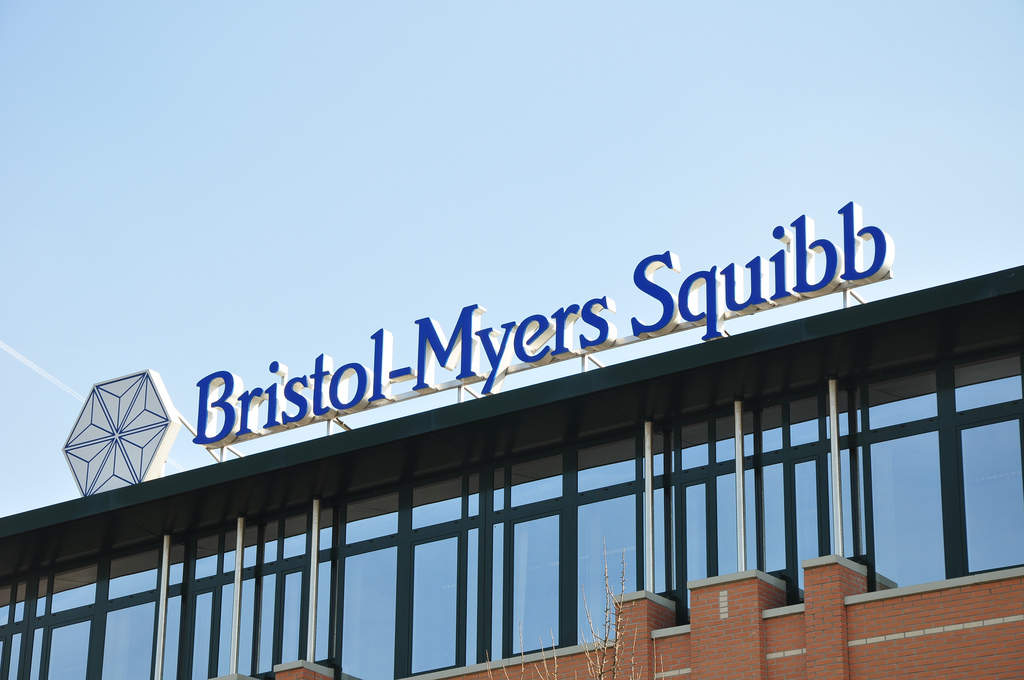
On Monday pharmaceutical company Bristol-Myers Squibb (BMS) announced the success of its Phase III trial for a new cancer treatment.
The study, known as Checkmate-227, trialled a combination of two of the company’s immunotherapy drugs, Opdivo and Yervoy, in patients with first-line non-small cell lung cancer.

Discover B2B Marketing That Performs
Combine business intelligence and editorial excellence to reach engaged professionals across 36 leading media platforms.
Yervoy was the first immune checkpoint inhibitor to be released on the market in 2011, followed by Keytruda, Opdivo and Tecentriq. Opdivo is currently approved in more than 60 countries, including the US, the EU and Japan. The combination of Opdivo and Yervoy has already been approved as a treatment for melanoma.
Preliminary results show the drug combination delayed the progression of tumours more effectively than chemotherapy. A secondary part of the trial, focussed on assessing overall survival with the Opdivo and Yervoy combination, is set to continue.
The trial
The study, which involved 2,500 participants, found that the combination of immunotherapy drugs lengthened progression-free survival when compared to chemotherapy.
Both Opdivo and Yervoy block a protein that tumours produce to evade detection by the immune system. Opdivo has become an important treatment option for a number of cancers. A programmed death-1 (PD-1) immune checkpoint inhibitor, it uses the body’s own immune system to help restore an anti-tumour immune response.

US Tariffs are shifting - will you react or anticipate?
Don’t let policy changes catch you off guard. Stay proactive with real-time data and expert analysis.
By GlobalDataPositive results were seen in patients whose tumours had high levels of an emerging biomarker known as tumour mutation burden (TMB). Tumour cells with high TMB also showed higher levels of neoantigens, which are thought to help the immune system recognise tumours and cause an increase in anti-tumour response.
The company said that TMB is an important biomarker that could help predict a patient’s response to immunotherapies. BMS’s head of oncology Dr Fouad Namouni said that in future trials the company will look for TMB in tumours and the blood.
“One could imagine that multiple biomarkers could lead us to different types of combinations in patients, and that will probably improve the benefit for these subgroups of patients,” he said.
Immunotherapy in oncology
In recent years immunotherapy has revolutionised cancer treatment, and many see it as an attractive, albeit expensive, alternative to chemotherapy. Often it shows fewer side effects and, as BMS’s trial showed, can significantly lengthen patients’ lives. Its most notable indications are malignant melanoma and non-small-cell lung cancer.
BMS isn’t alone in trialling new drug combinations for cancer treatment. In January, Merck (MRK) reported a successful study in which patients newly diagnosed with non-small cell lung cancer were treated with its immunotherapy drug pembrolizumab (Keytruda) in combination with two chemotherapies. It was granted accelerated approval by the FDA last year, providing that the company conducts additional studies.
Last year the FDA also approved two immunotherapies to treat certain leukaemias and lymphomas. Known as chimeric antigen receptor T therapy (CAR T cell therapy), it involves the removal of immune cells called T-cells and modifying them to recognise and target proteins on cancer cells.
This week Roche announced the success of a study that mixed Tecentriq with its older drug Avastin. The immuno-oncology combination was found to reduce the risk of renal cell carcinoma progression, or death, by 26% in patients whose tumours showed high levels of the protein that allows them to avoid immune detection.





